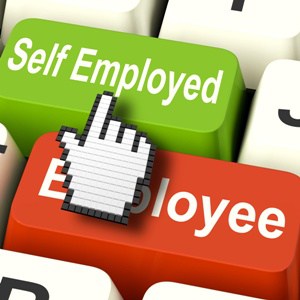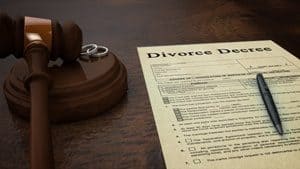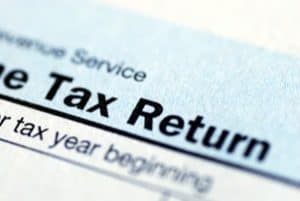 Veterans’ disability benefits are generally only available to veterans who were discharged under other than dishonorable conditions. In other words, you may be eligible for veterans’ disability benefits if you received an honorable discharge or a general discharge from the military, but you are not eligible if you received a dishonorable discharge.
Veterans’ disability benefits are generally only available to veterans who were discharged under other than dishonorable conditions. In other words, you may be eligible for veterans’ disability benefits if you received an honorable discharge or a general discharge from the military, but you are not eligible if you received a dishonorable discharge.
Dishonorable Discharges May be Appealed
A dishonorable discharge is only handed down to those who have been court-martialed for a serious offense, such as desertion or assault. It is possible to appeal your dishonorable discharge and perhaps get it downgraded to a different type of administrative discharge—even a few years after your military service ends. If you believe that your dishonorable discharge is incorrect, you should take action to protect your rights and any veterans’ benefits that may be rightfully available to you.
You Don’t Need an Honorable Discharge to Get Veterans’ Disability Benefits
You may be eligible for veterans’ disability benefits if you received a bad conduct discharge (BCD) or an other-than-honorable discharge (OTH). In these two cases, you may wish to speak to a veterans’ disability attorney about your case. While some former service members have successfully fought for VA disability benefits despite an OTH discharge, others have been denied. Your case may depend on the reason for your discharge and whether it was related to your physical and mental health issues at the time.
Don’t Delay Getting Help With a Veterans’ Disability Claim
Veterans’ disability benefits can have a significant impact on your future. If you think you may qualify for such benefits, or if you have questions about your eligibility for veterans’ disability benefits, we encourage you to contact an experienced disability lawyer as soon as possible to discuss your case and to make sure your rights are protected. Please call us today or reach out to us via this website for additional information.

Yes, you can receive Social Security disability benefits if you have been diagnosed with a terminal illness and you meet the requirements of the Social Security disability program. In fact, your application for benefits may be expedited through the Social Security Administration’s terminal illness program known as TERI.
Are You Eligible for TERI?
According to the Social Security Administration, you may be eligible for TERI if you are diagnosed with “a medical condition that is untreatable and expected to result in death.” Some conditions, such as amyotrophic lateral sclerosis (ALS), may automatically classify your application as a TERI case. Other conditions that are often added to the TERI program include some forms of cancer, chronic heart failure, fatal genetic issues in newborns, and those on life-sustaining devices such as a ventilator.
You may claim that you have such a condition in your Social Security disability application, or the Disability Determination Services (DDS) may identify your application as a TERI case based on the content of your application.
DDS is not required to tell you that your case is being considered as a TERI case and is specifically instructed by the Social Security Administration not to use the word terminal in anything that is made available to you.
Who Makes Sure TERI Cases Are Expedited?
That is the responsibility of DDS management and the Social Security Administration’s field offices. DDS management is supposed to follow up on a TERI case every 10 days until an eligibility determination is made. If a determination is not made within 30 days, the field office should become involved.
If you are suffering from a terminal illness and you qualify for Social Security disability, you have the right to have your application expedited and to start receiving benefits as soon as possible. An experienced Social Security disability lawyer can help you get the benefits you deserve. Please contact us today to learn more.


Often, a disability impacts more than just your ability to work. It could also impact your ability to manage your money or to pay your bills on time, for example. In these cases, the Social Security Administration allows Social Security disability representatives to have a representative payee appointed.
What Is a Representative Payee?
A representative payee will receive a Social Security disability recipient’s monthly benefits and use that money for the benefit of the Social Security disability recipient. Specifically, the representative payee will use the money from the disability payments to pay for the Social Security disability recipient’s rent, mortgage, utilities, food, clothing, personal care and home care items, medical expenses, and to cover any other necessary expenses. Extra money can be used on entertainment, education, or home improvements for the person with the disability or can go into a savings account for the benefit of the person with a disability. A payee should never use the disability payments for something other than the benefit of the Social Security recipient.
Who Is the Representative Payee?
A payee is usually a family member, partner, close friend, or loved one. However, payees are sometimes a nursing home, an adult care facility, or another institution.
If you think your loved one needs a representative payee and you are willing to serve in that role, you should:
- Speak with your loved one about his needs and whether he would like assistance with his finances and care.
- Call the Social Security Administration or stop by a local office and let them know about the situation.
- Collect a note from your loved one’s doctor as well as important personal information, such as a Social Security number.
- Let the Social Security Administration know if any changes take place that would require a change in payments, such as a deteriorating health condition, a new source of income or employment, or the death of your loved one.
Do you have questions about acquiring Social Security disability benefits or selecting a representative payee? Contact our experienced Social Security disability lawyers today to schedule an initial consultation and to get the advice you need to move forward.

 In 2015 (the most recent year for which statistics are available), 15 million people, or 10.1 percent of the American workforce, was self-employed. Texas was right in line with the national average with 10% of the workers in this state being self-employed, according to the Bureau of Labor Statistics.
In 2015 (the most recent year for which statistics are available), 15 million people, or 10.1 percent of the American workforce, was self-employed. Texas was right in line with the national average with 10% of the workers in this state being self-employed, according to the Bureau of Labor Statistics.
If you are self-employed or work as an independent contractor or freelancer, do you still qualify for Social Security disability benefits? And what happens if you suffer from an injury, illness, or health condition that prevents you from continuing to work for an extended period of time?
Is Social Security Disability an Option for You?
Whether or not you are eligible for Social Security disability payments when you are self-employed depends on several factors, including:
- How long you have been in the workforce.
- Whether or not you have reported your income to the government.
- Whether you have paid your Social Security taxes.
- Whether you have a qualifying disability that is expected to last longer than a year (or that is fatal).
When you are employed by another entity, your Social Security taxes are usually taken out of your paycheck. When you are self-employed, you are responsible for reporting your income and paying your Social Security taxes. As long as you pay in to the system, you have the same right to Social Security disability benefits as workers who are employed by others.
What If You Are Still Doing Some Work?
For people who are employed by others, the Social Security Administration uses a specific dollar amount to determine if they are engaged in substantial gainful activity and, therefore, able to work. The same rules do not apply to the self-employed, however. Instead, the Social Security Administration will perform a countable income test to determine if you engage in substantial gainful activity.
You are entitled to a trial work period, however, just like people who are employed by others.
Do you have questions about self-employment and disability benefits? Call our experienced Social Security disability lawyers today for more information and download a FREE copy of our report, Social Security Disability: What You Need to Know.


If you are receiving Social Security disability benefits based on your own work history, your divorce will have no bearing on your eligibility for Social Security disability benefits. These disability benefits depend upon your work history and your contribution to the Social Security fund, not your family or your income. Thus, if you were eligible for Social Security disabilitybenefits when you were married, you will remain eligible for such payments after your divorce.
But Will Your Payments Change?
The calculation of your payments will not change, and if you divorce without any alimony or child support obligations, the amount you receive will not change. However, if you are required to pay alimony or child support, your Social Security disability payments may be garnished to satisfy those legal obligations.
What if You Were Eligible as a Dependent Based on Your Spouse’s Work History?
In limited circumstances, the Social Security Administration allows spouses of workers eligible for Social Security disability to also collect benefits. Generally, a spouse may be eligible for Social Security disability if the spouse is:
- Aged 62 or older
- Caring for a minor child under the age of 16
- Caring for a disabled child
After a divorce, you may continue to receive Social Security disability benefits as an ex-spouse if:
- You were married for at least 10 years.
- You are aged 62 or older.
- You have not remarried.
- You are not entitled to a bigger Social Security payment on your own.
If your children are receiving Social Security disability dependent benefits, your divorce is unlikely to impact those benefits.
Other Social Security programs, including supplemental security income, have different rules about how divorce impacts payments. Thus, it is important to know exactly how your benefits, and those of your family members, will be impacted by a divorce. To find out more, please contact Morgan Weisbrod today to schedule a free consultation with an experienced Social Security disability lawyer.

 If you receive Social Security disability benefits, those benefits may be taxable. Social Security disability is not a need-based program. Therefore, there are often significant differences in recipients’ taxable income even if they are not working due to a disability, and some people end up paying taxes while others do not.
If you receive Social Security disability benefits, those benefits may be taxable. Social Security disability is not a need-based program. Therefore, there are often significant differences in recipients’ taxable income even if they are not working due to a disability, and some people end up paying taxes while others do not.
According to the Social Security Administration, approximately 33% of Social Security disability recipients pay taxes on their benefits.
Will You?
Your responsibility to pay taxes—and the amount of those taxes—depends on your total income as well as the income of your spouse. According to the Social Security Administration:
- If your annual income is more than $25,000 and you file your taxes as an individual, you may have to pay taxes on Social Security disability benefits.
- If your annual income is more than $32,000 and you file your taxes jointly with your spouse, you may have to pay taxes on Social Security disability benefits.
Income could include wages, interest earned, or dividends. The percentage of your benefits that are taxed will depend on the amount of income you must declare on your tax returns. Your tax rate on Social Security disability benefits will be the same as it is on your other types of income.
If you reside in Texas, your Social Security disability benefits will not be subject to a state income tax because the state does not currently impose a state income tax.
It is very important that you list your Social Security benefits as well as all other sources of income when you pay taxes. If you have questions about your Social Security benefits and your taxes, be sure to speak with a tax advisor or accountant. If you have questions about your Social Security disability claim, we encourage you to contact our experienced Social Security disability attorneys for more information.

At first glance, there is no way to speed up your Social Security disability benefits claim. There is a backlog of cases, and you have to wait in line for your case to be heard. just like everyone else.
However, you should keep a few things in mind during your application process that could potentially save you months of waiting. Specifically, you can:
- Check the Compassionate Allowances list. If you are suffering from one of the very serious medical conditions listed by the Social Security Administration in the Compassionate Allowances Initiative, you qualify for an expedited application process. The Social Security Administration began the Compassionate Allowance program in 2008 and continually makes updates to the conditions that are included for expedited review.
- Fill out your initial application completely and accurately. Two out of three applications for Social Security disability benefits are rejected at first. In many cases, it is simply because the applicant did not provide enough information proving their disability or because the applicant did not fill out the application correctly. While these applicants may eventually qualify for benefits, they will have to wait extra time while they go through the appeals process.
- Hire a Social Security disability lawyer. A lawyer can make sure your application is completed accurately and can monitor the status of your application to make sure there are no unnecessary delays. Additionally, if an appeal needs to be filed, a lawyer can do so as quickly as possible.
You become eligible for Social Security disability benefits in the sixth full month after your disability onset date. Our goal is to help you get the Social Security disability benefits you deserve as close to your eligibility date as possible so that you can start receiving the benefits to which you are legally entitled. To learn more about how we can help you, please schedule an initial consultation with us today. You can reach us by phone or via this website at your convenience.

Every case is unique. However, for some Social Security disability applicants, the time that it takes to get Social Security disability benefits may seem exceedingly long. Even if your application is approved on the first try (and most are initially denied) the wait can be several months long.
The Official Wait Time
The Social Security Administration (SSA) will determine the date on which your disability began. You only become eligible for benefits in the sixth full month following that date. The first five months are considered a waiting period and, even if your application was to be approved during that time, you would not be eligible for Social Security disability benefits.
Of course, in some cases, the waiting time for Social Security disability benefits can be much longer. Your benefits may be delayed, for example, if your initial application for benefits is denied. Two-thirds of Social Security disability applicants have their initial applications denied. You have the right to appeal the denial; however, it could take over a year to finish the process and to get the Social Security disability benefits you deserve.
Now Is the Time to Help Speed Things Along
The more you know about how to complete your paperwork and how to successfully apply for benefits, the more likely you are to secure disability benefits sooner.
Additionally, there is a group of 100 different diseases and conditions on the SSA’s Compassionate Allowances list. If you are suffering from one of these illnesses, your application for benefits can be fast-tracked.
Our board-certified disability lawyers are committed to helping our clients get the benefits they deserve as quickly as possible. We will do our best to shorten your wait time so that you can start receiving the benefits you need. For more information about how we may help you, please start a live chat with us now or call us directly to schedule an initial consultation.


Homeless man
Even if you don’t have a permanent address or a place to call your own, you can still qualify for veterans’ disability benefits. Homelessness should not prevent you from recovering veterans’ disability benefits if you qualify for such benefits.
How Many Veterans Are Homeless?
Since 2010, the number of homeless veterans in the United States has been cut in half according to information from the United States Department of Veterans Affairs (VA). Yet in Texas alone there were an estimated 2,393 homeless veterans in 2016—putting Texas among the top five states in the country with homeless veterans.
Many homeless veterans suffer significant disabilities such as post-traumatic stress disorder (PTSD), brain injuries, amputations, and other injuries that prevent them from earning a living wage and supporting themselves. If you suffer one of these disabilities—or any other that is connected to your time in the service—you may qualify for veterans’ disability benefits.
There Are Programs to Help
Homeless veterans are eligible for all of the same veterans’ assistance programs as other veterans—including disability benefits if they so qualify. To find out if you qualify for veterans’ disability benefits, you must fill out a complete application with the VA. While the process may seem overwhelming, an attorney can help you through it so that you get the benefits you deserve.
In addition to veterans’ disability benefits, the Department of Veterans Affairs offers homeless veterans and veterans in danger of becoming homeless a number of programs and resources to help keep them sheltered and off the streets. These homeless veteran programs involve different types of assistance, including job training and placement, substance abuse programs, general health care, and mental health counseling.
If you are a homeless veteran seeking disability benefits, you should know that we are here to help. Please contact our experienced attorneys directly via this website or by phone to set up an initial, no-obligation consultation and to make sure you are getting all of the benefits you have earned.

 Yes. Your housing status has no impact on your Social Security disability eligibility. Whether you are currently living in a homeless shelter, living with a friend or relative, or living on the streets, you are absolutely still eligible to collect Social Security Disability Insurance (SSDI) benefits if you qualify.
Yes. Your housing status has no impact on your Social Security disability eligibility. Whether you are currently living in a homeless shelter, living with a friend or relative, or living on the streets, you are absolutely still eligible to collect Social Security Disability Insurance (SSDI) benefits if you qualify.
You Are Not Alone
A significant percentage of the homeless population is disabled. Having a disability may make it difficult or impossible to work and, without an income, it can be difficult to have consistent housing. The Social Security disability benefits system is in place to help you if you can’t work because of a disability and if you cannot afford basic needs like shelter, food, and clothing.
Don’t Let Your Homelessness Prevent You From Applying for Benefits
Sadly, being homeless often serves as a barrier to successfully apply for disability benefits. Faced with long waiting periods, a trying application process, limited access to medical care, and other stumbling blocks, many homeless or sheltered people do not receive the benefits they so desperately need.
However, the Social Security Administration (SSA) must consider your application and, if you meet the Social Security disability eligibility requirements, the SSA must approve your application. Then, the SSA should work with you to determine how best to get your benefits to you if you qualify.
The first step is to file a complete application with the SSA online or at your local office. The SSA may also be able to provide you with information about local housing resources and support.
Our board-certified Social Security disability lawyers believe that everyone—regardless of their housing status—has the right to apply for Social Security disability benefits. If you are disabled and homeless, we encourage you to contact us via this website or by phone for more information. We will work hard to make sure that your rights are protected and that you get the benefits you deserve.














